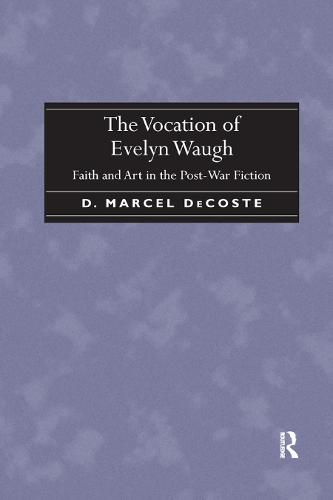Readings Newsletter
Become a Readings Member to make your shopping experience even easier.
Sign in or sign up for free!
You’re not far away from qualifying for FREE standard shipping within Australia
You’ve qualified for FREE standard shipping within Australia
The cart is loading…






Arguing against the critical commonplace that Evelyn Waugh’s post-war fiction represents a decline in his powers as a writer, D. Marcel DeCoste offers detailed analyses of Waugh’s major works from Brideshead Revisited to Unconditional Surrender. Rather than representing an ill-advised departure from his true calling as an iconoclastic satirist, DeCoste suggests, these novels form a cohesive, artful whole precisely as they explore the extent to which the writer’s and the Catholic’s vocations can coincide. For all their generic and stylistic diversity, these novels pursue a new, sustained exploration of Waugh’s art and faith both. As DeCoste shows, Waugh offers in his later works an under-remarked meditation on the dangers of a too-avid devotion to art in the context of modern secularism, forging in the second half of his career a literary achievement that both narrates and enacts a contrary, and Catholic, literary vocation.
$9.00 standard shipping within Australia
FREE standard shipping within Australia for orders over $100.00
Express & International shipping calculated at checkout
Arguing against the critical commonplace that Evelyn Waugh’s post-war fiction represents a decline in his powers as a writer, D. Marcel DeCoste offers detailed analyses of Waugh’s major works from Brideshead Revisited to Unconditional Surrender. Rather than representing an ill-advised departure from his true calling as an iconoclastic satirist, DeCoste suggests, these novels form a cohesive, artful whole precisely as they explore the extent to which the writer’s and the Catholic’s vocations can coincide. For all their generic and stylistic diversity, these novels pursue a new, sustained exploration of Waugh’s art and faith both. As DeCoste shows, Waugh offers in his later works an under-remarked meditation on the dangers of a too-avid devotion to art in the context of modern secularism, forging in the second half of his career a literary achievement that both narrates and enacts a contrary, and Catholic, literary vocation.